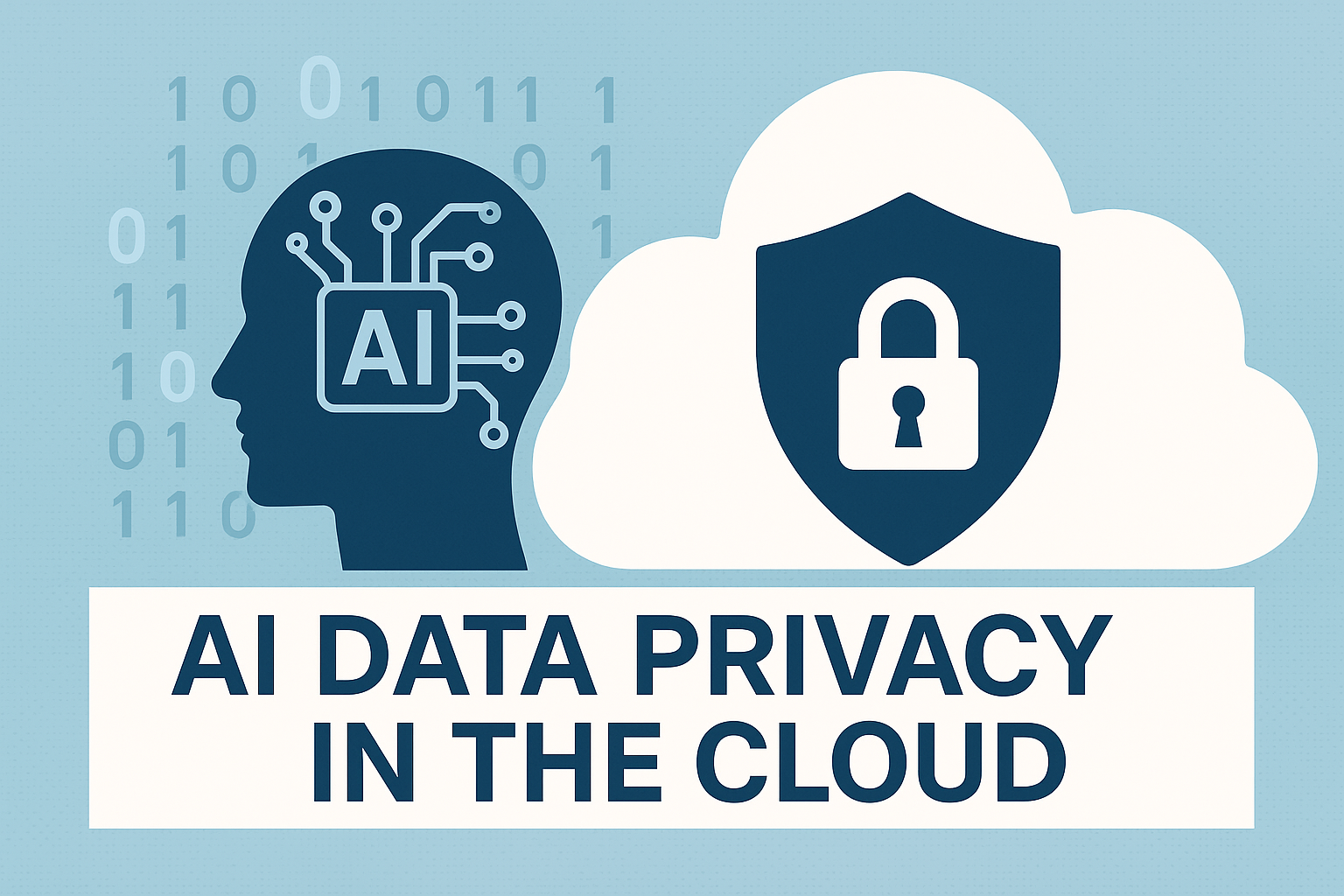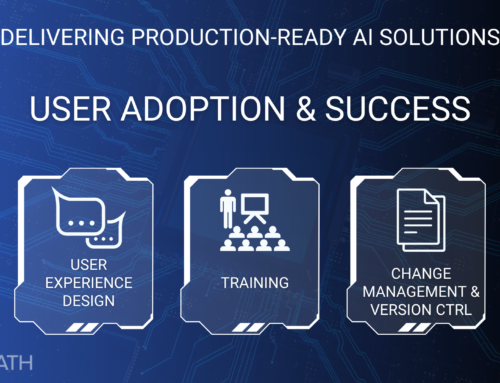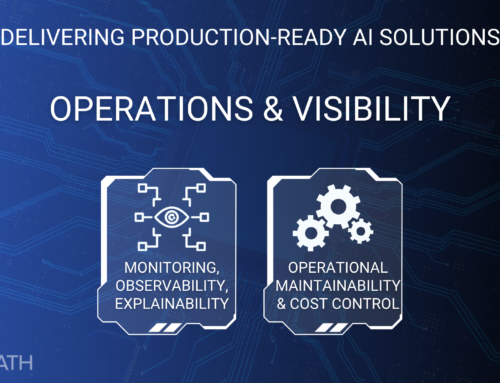Your customer data contains your competitive advantage. Financial records, strategic plans, customer insights, proprietary processes. This information drives your business forward. So when you consider deploying AI to gain efficiency and insights, one question likely keeps you up at night: where does my data go, and who can see it?
This concern isn't unfounded. AI systems need data to function, and many early AI services operated on a simple premise: send us your data, we'll process it, and everyone benefits from the collective learning. But this approach creates obvious problems for businesses handling sensitive information.
Why AI Data Privacy Matters More Than Ever
Unlike traditional software that processes your data and forgets it, AI systems have historically learned from every interaction. When you use a consumer AI service, your conversations often become training material for future versions. Your proprietary information could theoretically help competitors who use the same service later.
Consider what happens when your team uses AI to analyze financial forecasts, review legal contracts, or brainstorm new product ideas. If that AI service stores your inputs and uses them for training, you're essentially sharing your strategic thinking with an unknown audience. The AI provider might promise security, but you're still placing significant trust in their policies and technical controls.
The stakes get higher when you factor in regulatory requirements. Industries like healthcare, finance, and government face strict data protection mandates. A single privacy breach doesn't just risk competitive advantage. It can trigger regulatory penalties and damage customer trust.
The Traditional Approach: Keeping Everything In-House
For decades, companies solved data privacy by keeping sensitive information within their own walls. Your servers, your network, your control. This on-premises approach meant that customer data never left your direct supervision.
Think of it like keeping important documents in your office safe versus a shared bank vault. With on-premises infrastructure, you hold the only key. You control who has access, when they can access it, and how long information stays stored. IT teams can monitor every interaction, implement custom security protocols, and ensure compliance with industry regulations.
This model worked well for traditional business applications. Customer relationship management systems, financial databases, and internal communications could all operate safely within your network perimeter. Even when you needed external processing power, you could often maintain control by running software on your own hardware.
But AI changes this equation. Training sophisticated AI models requires enormous computational resources that most companies can't practically maintain in-house. Modern AI services offer capabilities that would cost millions to replicate internally, making cloud-based solutions incredibly attractive, if you can solve the privacy puzzle.
Cloud-Based AI Privacy: Your Options
Fortunately, the cloud AI landscape has evolved beyond the "send us your data and trust us" model. Today's leading providers offer several approaches that let you harness AI power while maintaining data control.
Virtual Private Clouds create isolated environments within public cloud infrastructure. Your AI workloads run in dedicated computing resources that other customers can't access. It's like having a private office within a shared building. You get the benefits of professional infrastructure without sacrificing privacy.
Data residency controls let you specify exactly where your information gets processed and stored. Want your European customer data to stay within EU borders? You can configure that. Need to ensure government contracts never leave approved geographic regions? That's possible too.
Encryption throughout the process protects your data whether it's traveling to cloud services or sitting in storage. Modern encryption means that even if someone intercepts your data, they can't read it without your specific keys.
Zero-retention policies ensure that cloud AI services process your requests without storing copies. Your data flows through the system, gets processed, returns results to you, and then disappears from the provider's infrastructure.
Private model deployment takes this further by letting you run AI models on dedicated infrastructure. Instead of sharing computational resources with other customers, you get exclusive access to the AI system processing your data.
The key insight is that "cloud" doesn't have to mean "shared with everyone." Modern cloud providers offer granular controls that can match or exceed the privacy protections of traditional on-premises systems.
AWS Bedrock: A Privacy-First Approach
Amazon Web Services has taken a particularly strong stance on data privacy with their Bedrock AI service. Their approach addresses the core concerns that keep business leaders awake at night.
Your data stays yours. AWS explicitly states that customer prompts, outputs, and any data sent to Bedrock will not be used to train or improve foundation models. When you send information to Bedrock for processing, it doesn't become part of the AI's learning process. Your competitive insights remain your competitive insights.
No default storage means no lingering copies. Unless you specifically enable logging features, Bedrock doesn't store your requests and responses. Your data flows through the system, gets processed, and disappears. Think of it like a secure phone call—the conversation happens, but there's no recording unless you choose to make one.
Model providers can't see your data. Even though Bedrock uses AI models from companies like Anthropic and Stability AI, these providers don't have access to your information. AWS maintains strict isolation between customer data and model provider operations. The AI companies provide the intelligence, but AWS controls the environment where your data gets processed.
Encryption protects data in motion and at rest. All data traveling to and from Bedrock uses transport layer security encryption. Any information that does get stored (like logs you choose to enable) gets encrypted using AWS Key Management Service. You control the encryption keys, giving you ultimate authority over data access.
This approach lets you deploy sophisticated AI capabilities while maintaining the data control that on-premises systems traditionally provided. You get the computational power of cloud-scale AI without sacrificing the privacy protections your business requires.
Want the details straight from AWS? Here is their Data Protection statement.
Moving Forward with Confidence
The evolution of cloud AI privacy controls means you don't have to choose between innovation and data protection. Modern platforms like AWS Bedrock demonstrate that it's possible to harness advanced AI capabilities while maintaining strict control over sensitive information.
The key is asking the right questions. When evaluating AI services, focus on data flow, retention policies, access controls, and encryption standards. Understand exactly where your information goes, who can see it, and how long it persists.
AI adoption doesn't require compromising your data privacy. With the right cloud provider and proper configuration, you can deploy AI solutions that enhance your business while keeping your competitive advantages secure.





